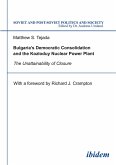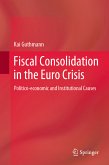Why did precarious and collapsed democracies in Europe develop into highly stable democracies? Gerard Alexander offers a rational choice theory of democratic consolidation in a survey of the breakdowns of and transitions to democratic institutions. Through an analysis of developments in Spain, Britain, France, Germany, and Italy, Alexander explores how key political sectors established the long-term commitment to democracy that distinguishes consolidated democracies. Alexander makes a highly accessible rationalist argument about the conditions under which such commitments emerge, arguing that powerful sectors abandon options for overthrowing democratic rules only when they predict low risks in democracy. The author's argument parallels established claims about the predictability essential to the development of modern capitalism. The Sources of Democratic Consolidation outlines Alexander's claim that a political precondition, rather than an economic or social precondition, exists for consolidated democracies. Drawing on interviews and archival research, the author links his argument to evidence from the five largest countries in Western Europe from the 1870s to the 1980s and also discusses the implications for the prospects for democratic consolidation in other regions. Political pacts, power-sharing, and institutional designs, he says, may help stabilize uncertain democracies, but they cannot create consolidation.
Dieser Download kann aus rechtlichen Gründen nur mit Rechnungsadresse in A, D ausgeliefert werden.









